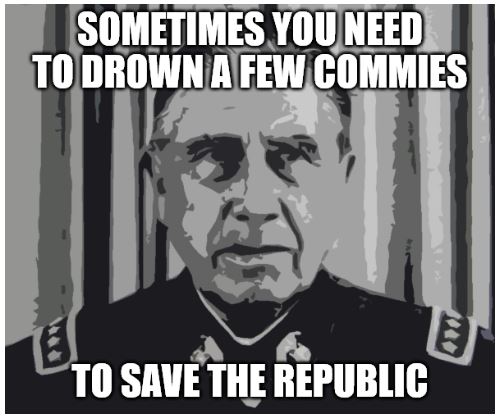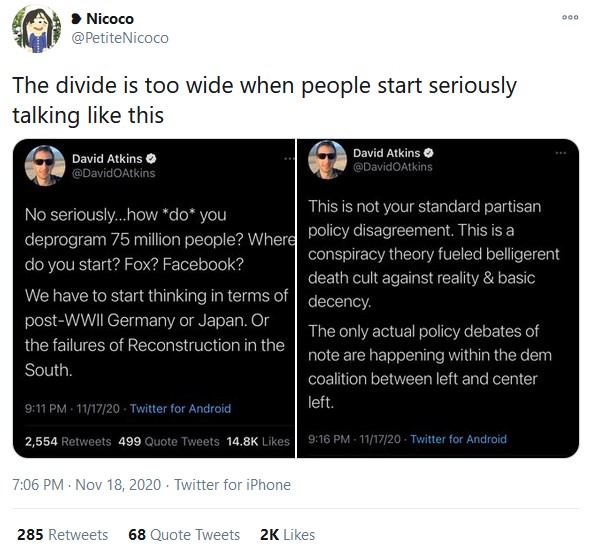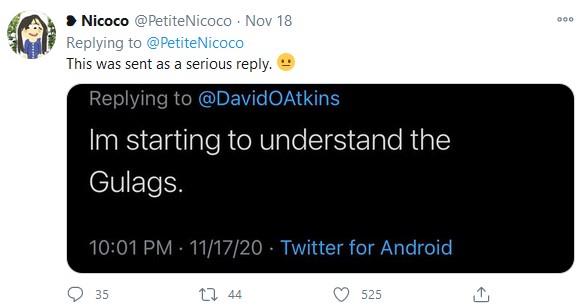Let’s open with a little received wisdom:
“There’s no way to rule innocent men. The only power any government has is the power to crack down on criminals. Well, when there aren’t enough criminals one makes them. One declares so many things to be a crime that it becomes impossible for men to live without breaking laws.” — Ayn Rand, Atlas Shrugged
That first sentence says it all. As long as you keep on the right side of the law, you have nothing to fear from authority.
Now’s when it gets tricky, because politicians cannot resist making laws, and as the number of laws grows, so does the chance that you will fall afoul of one of them, no matter how hard you try. As one FBI agent once put it: “This is America. Nobody can go a day without breaking some law or other.” And that was said in 1998. The fact that this could be said with pride — or resignation — makes me want to reach for the tar and feathers, but that’s only my reaction to the first step. There are more.
The next step is to make transgressors into “Enemies Of The People” or (in the case of the Chinkvirus) a “Menace To Society”. In sociological terms, this is called “scapegoating” or in extreme cases, demonization. We’ve seen this in the past, of course, such as when the disgusting Southern Poverty Law Center (SPLC) publishes their various “hate lists” which set out to demonize as “hate groups” first the easy targets such as the KKK, and eventually the most innocuous organizations (e.g. campus-based Republican organizations). From that. it’s easy to apply the perjorative term du jour (“racist”, “Nazi”, “fascist” etc.) to whomever doesn’t agree with your position on anything.
Beyond labeling, of course, lies social shaming, “doxxing”, and the “cancel culture.” After that, the force of law. (We already have such laws on the books; murdering someone in cold blood: bad. Murdering someone and calling them a dirty nigger at the same time: somehow worse.) At some point, it will become an actual crime to say the word niggerniggernigger anywhere, even inside your own home, First Amendment be damned. And why not? seeing as racism has become punishable by law, any number of asterisks can be attached to the freedom of speech, of course.
“But the Supreme Court will intervene!” Don’t make me laugh. As an entity, the fucking Supreme Court has shown itself to be as useful as a paper-towel birdscreen on an airliner’s jet engine when it comes to protecting our rights.
Which leads us to the next Amendment, of course.
Now the Second has some issues for our wannabe-tyrants, of course, because gun owners are, well, armed (always a decent albeit drastic check on government excess). And disarmament is likely to prove difficult if not impossible, simply because even if only 1% of gun owners turn violent, that’s still a greater number than the number of law enforcement officers who would be tasked with doing the job.
There is another way to disarm gun owners, and it’s quite legal: pass a law or regulation that requires gun owners to pay a tax on some or all of their firearms, and when they refuse… ta-dah! Not only can the government use the I.R.S. to harass and prosecute, but because the refuseniks are de facto lawbreakers (refusal to pay federal taxes is a federal crime), they can be prohibited from owning firearms altogether once convicted of said crime. (Remember, trying to win a case against the I.R.S. in their own court system is 99.99% impossible, as to win, all they have to do is show that they acted properly in terms of their own regulations.)
Which is why the Socialists’ plan to tax “assault rifles” is such a pernicious act. If it ever becomes law (or a regulation under an Executive Order), we gun owners are fucked, pure and simple.
We can expect no help from the judiciary, as I noted above. We can likewise expect no help from local law enforcement refusing to enforce these un-Constitutional acts either, because the Biden Administration will just deploy federal agents (I.R.S., FBI, Fish & Wildlife, Postal inspectors — anyone they can bring to bear) and bypass your friendly sheriff’s deputies altogether.
And don’t think that there will be some kind of passive resistance from local law enforcement, either. If little Ector County in Texas (!!!) can deploy Meal Team Six just to shut down a fucking bar which stayed open defying a stupid Chinkvirus lockdown order passed by some local asshole mayor, believe me, you’re not going to be safe in your little suburban or rural bunker no matter how angry you are and how many rounds of 5.56mm ammo you have on hand.
I’m not often a doomsayer, but this is one of those occasions.
I’m also not given to issuing threats or warnings, so don’t expect some kind of challenge to come from me either. Let’s just see what happens, shall we?




